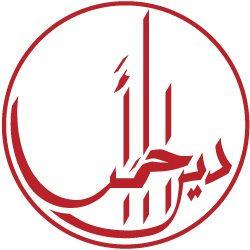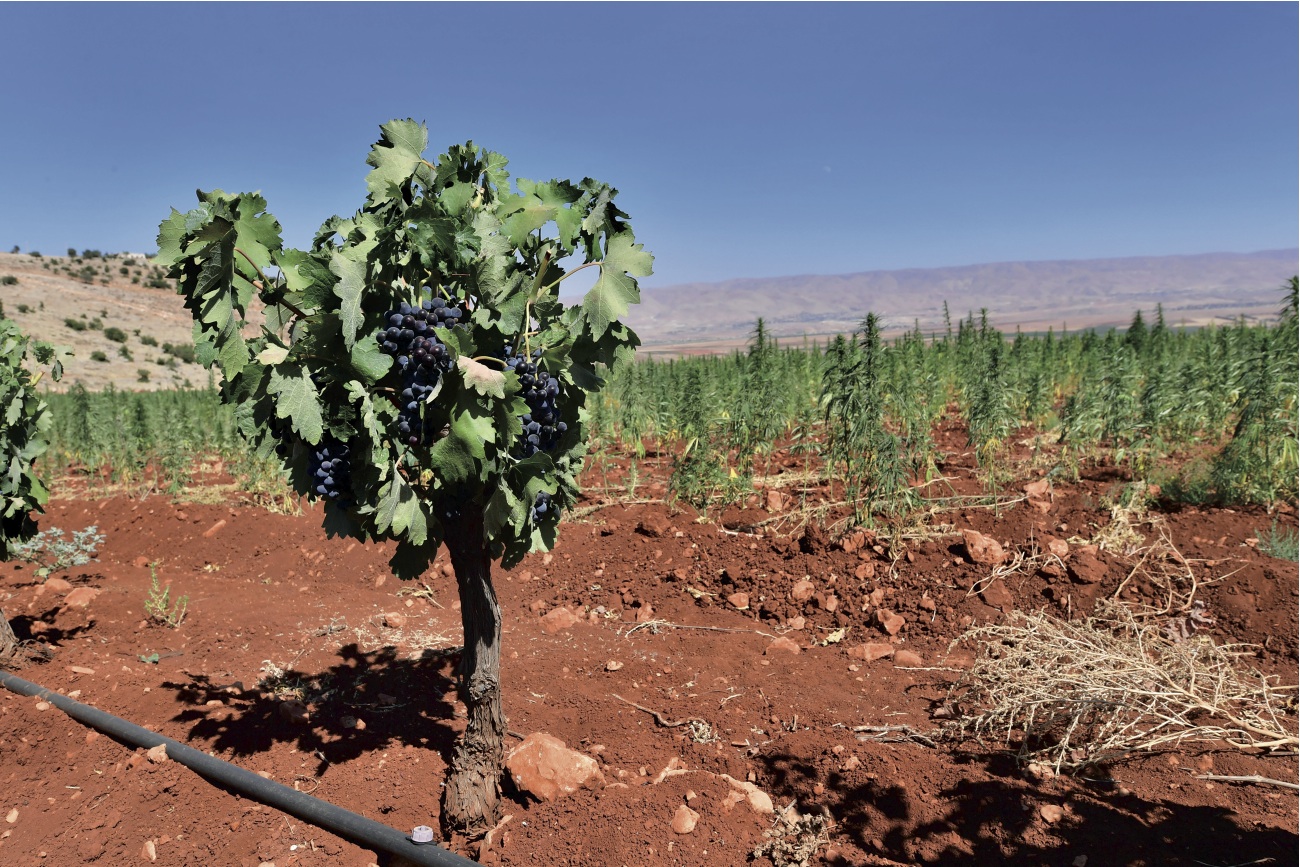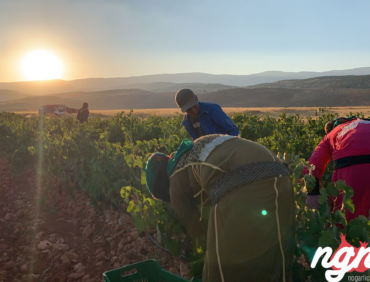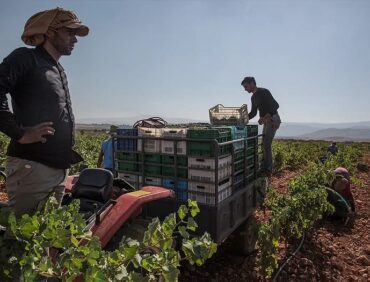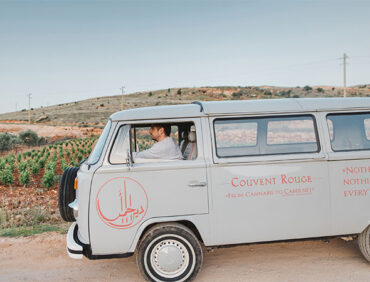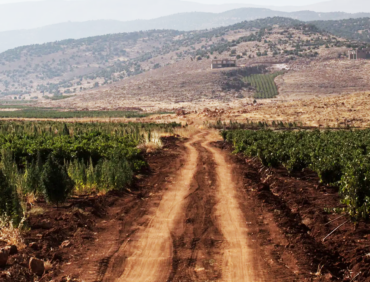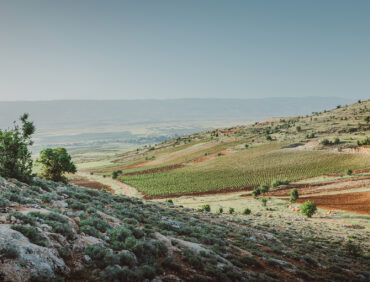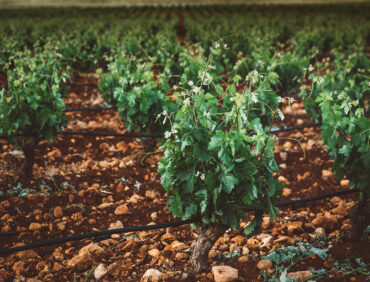Grapes of Change
Deir El Ahmar, a Christian village in the northern Bekaa valley’s Hermel-Baalbek region, is more notorious for its marijuana plantations than it is for great wines. But winemaking is precisely what the Coteaux d’Heliopolis Cooperative now wants their village to become known for.
The birth of the Cooperative
Having never really felt the government’s support or presence, planting hemp was just “the way things have always been done in Deir El Ahmar”, explains Charbel El Fakhri, the legal representative of the Cooperative and the son of its current president. It was also among the few choices of livelihood in the region: “Before it was either planting tobacco or weed or you leave the village because there is nothing else to do, and if you didn’t find a seller [for the weed], it would be a disaster,” recounts Fakhri.
Since marijuana is illegal in Lebanon, profits from its sales were inconsistent and fraught with risk; for a period of time, for instance, police would destroy the growers’ crop on an annual basis. So, in 1999, four hemp growers thought of substituting their plantations for wine producing grapes which they could sell to wineries. They formed the Coteaux d’Heliopolis Cooperative which was supported technically and through grants by the French region of Oise and encouraged by Zahle’s Chamber of Commerce and Agriculture.
Grape statistics
From the start, Deir El Ahmar’s hemp growers were intrigued by the Cooperative which grew more or less steadily each year reaching a total of 207 grape farmers in 2016. Among them, they farm approximately 240 hectares of land and produce 700 tons of grapes.
While the Cooperative first started distributing grapes only to the wineries in their immediate vicinity, demand quickly grew and they began to provide grapes to wineries in Zahleh, Qanafar and Bhamdoun. Today, 80 percent of their production is sold to wineries across Lebanon.
According to Fakhri, the Cooperative’s grapes are in high demand because of their superior quality due to the region’s altitude (which varies from 1,050 meters to 1,600 meters), its climate and its lack of pollution, compared to areas such as Zahle and the West Bekaa where vineyards are often adjacent to the street.
This quality comes with a high price tag with prices ranging from $1.05 per kilogram to $1.45 per kilogram, depending on the grape variety and style of planting. “Lots of wineries complain about the prices and not all of them buy from our cooperative, but what we stand for is quality and this is what we tell them,” insists Fakhri.
Change of guards
For this high quality to be consistently maintained, an organized management team was needed, something that was lacking in the early days of the Cooperative. While Fakhri is appreciative of the Cooperative’s first board of directors’ success in starting it up and recruiting growers, he says more organization is now needed for further development.
[pullquote]“It’s good to sell grapes but it’s more interesting to have your own wine as a cooperative and be able to export it around the world.”[/pullquote]
In 2013, the current board of directors was elected and immediately set to work restructuring the Cooperative. They hired a full-time financial auditor to keep track of their accounts and a six-person management team to handle quality control, distribution and marketing. They also set in place standards that differentiated the selling price of grape varieties according to which produced better wine and which were grown in a more efficient manner (instead of having all grapes at the same price, regardless of their quality or varietal significance). “These may be small details but they are very important for the Cooperative to keep on growing correctly,” says Fakhri.
The need for wine
As Fakhri puts it, it is almost a must for a wine grape growing cooperative to have its own wine and winery. “It’s good to sell grapes but it’s more interesting to have your own wine as a cooperative and be able to export it around the world,” enthuses Fakhri.
A more practical reason for having a cooperative wine is having a ready and reliable market for the grapes produced. “At a certain point in 2012, a ton of grapes were thrown away because there weren’t enough deals with wineries to sell them and the growers were not paid; it was almost a disaster. So we saw it as a necessity to have a winery that would ensure that the grapes produced would actually be used,” explains Fakhri.
The cooperative dabbled with wine in early 2009, producing it in wineries whose space they rented, but there was at first some inconsistency in production (with several years being skipped) and the wine was rebranded Coteaux des Cedres in 2013.
Having a winery in the region is also important, according to Fakhri, in order to conduct the tests needed on the grapes to assess alcohol levels and determine prime harvest time. While they used to send the grapes to Zahle for this, having a winery on the premises would definitely make the process both faster and smoother, says Fakhri.
Deir El Ahmar’s winery
However, the Cooperative’s budget was too tight and its time too stretched with its existing duties (such as managing the vineyards and maintaining standards) to add starting and running a winery to its agenda – Coteaux Des Cedres continued being produced in rented wineries at that time.
Fakhri and his partner Walid Hobchy (one of the original members of the Cooperative) needed a winery for their own private label, Couvent Rouge (which translates to Deir El Ahmar) which they started producing in 2010 – in a Zahle winery called Coteaux du Liban that they had rented – following Fakhri’s return from studying winemaking in Bordeaux. Their idea for this private label was borne out of curiosity for what could be done with the grapes they were already planting as part of the Cooperative.
So, in 2014, they decided to set up a winery in Deir El Ahmar which could also be used by the Cooperative. They secured the $1 million needed for the construction and equipment by taking loans from Kafalat and a private bank, selling shares (5 percent were sold to the Cooperative) and contributing some of their personal funds.
The winery, which is in its final stages of construction and will be ready to welcome guests in 2017, has been producing Coteaux Cedres and Couvent Rouges since 2014.
Wines of Deir El Ahmar
Couvent Rouge produces 20,000 bottles per year and are mainly distributed locally in restaurants. Fakhri says they still want to enter the local wine shops and delicatessen market, as well as the export market through their website and online commerce.
But the duo is not in a hurry and want to play their cards right with their wine. “We want to finish the winery and so [we] are taking it slow. We want to be able to receive people [at the winery] and teach them about the wine; we don’t want to be present in the market just for the sake of being present,” says Fakhri, explaining that working with wine has taught them to be patient.
Fairtrade
Meanwhile, Couteaux Des Cedres has been going strong with 100,000 to 140,000 bottles produced annually. The Cooperative’s wine is Fairtrade certified and Fakhri himself has been appointed chairman of Fairtrade Africa and is a member of Fairtrade International.
According to Fakhri, Fairtrade provides an eager international market which he prefers to the saturated Lebanese market-centered in Greater Beirut. “Beirut is an interesting but challenging market since there is a wine culture, but it’s a small city with low consumption, even when compared to another small city abroad. We are aiming for more than that because we have a village behind us; we have many advantages. If we have the demand for it, we can go up to 600,000 bottles from one year to another because we have the village vineyards, so instead of selling the grapes to a winery that year we keep them for the Cooperative and produce more wine,” explains Fakhri, adding that it is currently distributing to the UK, Japan and Sweden.
The village’s label
While Deir El Ahmar’s growers may have embraced wine grape production, their alcoholic beverage of choice remains whisky.
In order to promote a culture of wine drinking and show the growers that there is more to their vineyards than just a source of income, the Cooperative introduced in 2015 an Arabic wine label El Day’a, fully labelled in Arabic, and made it available only in their region. “We wanted the villagers to have pride in their product and be aware of what they are doing in the process,” explains Fakhri, adding that the locals are enjoying that wine and consuming it on an almost daily basis, not just on special occasions.
With the satisfied farmers working with the Cooperative, the winery and the three wine labels, the Cooperative and its board can sleep well knowing that their initial dream of transforming Deir El Ahmar into a wine producing village instead of a hash producing one is well on its way to being realized.
